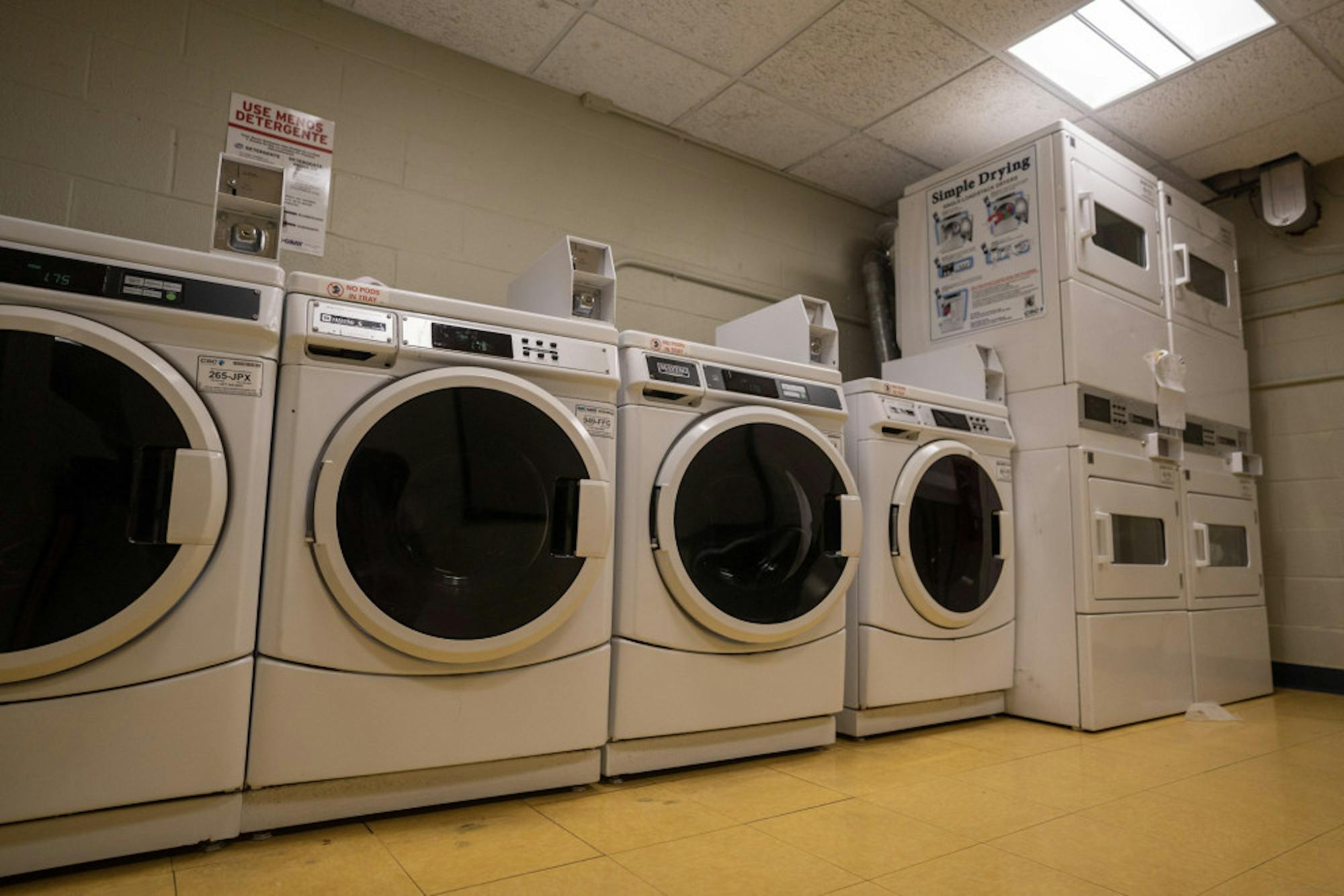The Tufts chapter of Young Democratic Socialists of America has created a petition calling on the university to provide free use of laundry machines in all residential halls. They join groups like the Tufts Community Union Senate in considering how laundry costs act as a barrier to equity, though their proposed solutions differ.
“Tufts professes to be anti-racist and equitable, but charging money for laundry disproportionately burdens low-income students, who are disproportionately students of color,” Tufts YDSA wrote in an open letter to University President Anthony Monaco. “This is just another way Tufts contributes to systems that widen wealth gaps and increase the cost of living for students of color and low-income students.”
The use of washers and dryers in residential halls costs $1.50 per cycle, paid through the school’s JumboCash system. Currently, a single load of laundry costs a minimum of $3.00, though due to additional drying fees, many students pay more than that to wash their clothes.
“I think it’s important because those small charges add up, especially when you routinely have to pay extra for drying,” first-year TCU Senator Ayomide Oloyede wrote in an email to the Daily. “After all, the 60 minutes allotted often does not fully dry your clothes. Additionally, the volume capacity of the dryers often forces you to do multiple loads.”
As the representative of the FIRST community, Oloyede said he is focusing his efforts on providing low-income students with assistance.
“I believe that laundry is not a burden or obstacle for most students on campus,” he wrote. “At most, it is a mild annoyance. What I mean by that is that most students on campus can comfortably afford the laundry costs, whereas it is more of an obstacle for many low-income students.”
While Oloyede and the TCU Senate are not the first to take up this issue, senators have made laundry assistance more of a priority compared to years past.
“This has been a goal for TCU Senate long since before I was in office; however, it requires institutional support and a dedicated funding stream to have longevity,” Oloyede wrote. “I would venture to say that we have made the most progress, arguably, in this semester than in previous years.”
Tufts YDSA has a more ambitious goal: to get Tufts to eliminate the costs associated with doing laundry in residence halls altogether. They cite free laundry machine access at similar collegiate institutions as a way to put pressure on the university to make the change.
“Tufts is one of the most expensive private universities in the country. We already pay around 9000 dollars in residential costs, and laundry is not included in this,” Neelan Martin, chair of Tufts YDSA, wrote in an email to the Daily. “When we started researching this, we found that top universities across the country, such as Columbia and Stanford, have free laundry programs.”
Oloyede worries that the cost of universally free laundry would simply be passed onto students in a different way.
“I would love to be wrong, and I think that it’s fantastic that students are working towards that; I have just taken a different approach, and I’m aiming for a slightly different end goal,” Oloyede wrote.
Tufts YDSA argues that free laundry machine access could be paid for by the university’s fast-growing $2.7 billion endowment.
“Tufts University is well positioned to be a leader in this field,” Tufts YDSA wrote in the letter. “Tufts’ endowment grew massively over the past two years (increasing by $750 million in fiscal year 2021 alone), and we have had more applicants and admitted students than ever before.”
The administration says that calls for lower laundry costs will be reviewed in the coming months.
“The issue of access to and affordability of laundry services in Tufts residence halls has been raised previously by members of the TCU Senate, and representatives of a number of offices will be meeting with them in December to discuss their concerns and ideas,” Patrick Collins, Tufts’ executive director of media relations, wrote in an email to the Daily. “Separately, the president’s office received the Tufts YDSA petition and will direct it to the appropriate parties for review.”
Martin said that Tufts YDSA hopes to circulate its petition as widely as possible but that this is not where their efforts end.
“We want to show the administration that this is an issue that students care about,” Martin said. “Hopefully, they will listen to the petition and will work to make laundry free. But, if they do not, we have some ideas on how to prove to the administration that making laundry free is important to the students. Tufts YDSA is very committed to this issue, and the petition is only the beginning of our work.”






